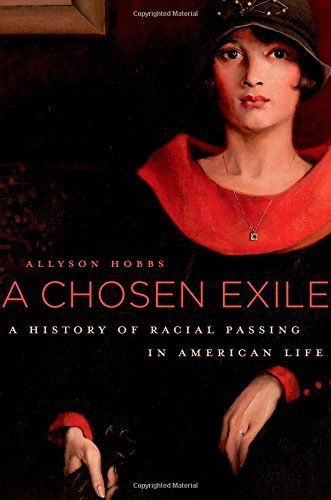

Purchase
Harvard University Press
October 2014
On Sale: October 13, 2014
400 pages
ISBN: 067436810X
EAN: 9780674368101
Kindle: B00O0NP3R8
Hardcover / e-Book
Add to Wish List
Non-Fiction History
Between the eighteenth and mid-twentieth centuries,
countless African Americans passed as white, leaving behind
families and friends, roots and community. It was, as
Allyson Hobbs writes, a chosen exile, a separation from one
racial identity and the leap into another. This revelatory
history of passing explores the possibilities and challenges
that racial indeterminacy presented to men and women living
in a country obsessed with racial distinctions. It also tells a tale of loss. As racial relations in America have evolved so has the
significance of passing. To pass as white in the antebellum
South was to escape the shackles of slavery. After
emancipation, many African Americans came to regard passing
as a form of betrayal, a selling of one’s birthright. When the initially hopeful period of Reconstruction proved
short-lived, passing became an opportunity to defy Jim Crow
and strike out on one’s own. Although black Americans who adopted white identities reaped
benefits of expanded opportunity and mobility, Hobbs helps
us to recognize and understand the grief, loneliness, and
isolation that accompanied—and often outweighed—these
rewards. By the dawning of the civil rights era, more and
more racially mixed Americans felt the loss of kin and
community was too much to bear, that it was time to “pass
out” and embrace a black identity. Although recent decades have witnessed an increasingly
multiracial society and a growing acceptance of hybridity,
the problem of race and identity remains at the center of
public debate and emotionally fraught personal decisions.
Comments
No comments posted.
Registered users may leave comments.
Log in or register now!
| 


 © 2003-2025 off-the-edge.net
all rights reserved Privacy Policy
© 2003-2025 off-the-edge.net
all rights reserved Privacy Policy